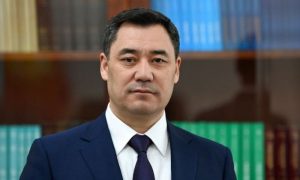QUITO, Ecuador: A significant majority of Ecuadoran voters supported the extradition of organized crime bosses to the United States in a referendum focused on combating drug trafficking and gangs, announced the electoral council on Sunday.
The referendum saw a resounding “yes” vote in favor of extradition, receiving 65 percent of valid ballots, while the “no” vote garnered 25 percent, according to a quick count of results shared by the electoral council at a news conference.
Out of Ecuador’s 17.7 million inhabitants, nearly 13.6 million were eligible to cast votes on 11 referendum questions included on the ballot.
President Daniel Noboa welcomed the outcome, describing it as a significant step in the fight against crime.
“We have defended the country, and now we will have more tools to combat crime and restore peace to Ecuadoran families,” Noboa stated following the release of an exit poll.
Ecuador has experienced a troubling surge in violence driven by the narcotics trade, with two mayors killed just this week.
If Ecuador’s constitution is amended to permit extradition, it will follow the footsteps of countries like Colombia and Mexico, which have extradited numerous reputed crime figures to face trial in the United States.
However, violence marred the voting day as assailants fatally shot a prison warden.
Damian Parrales, chief of El Rodero prison in coastal Manabi state, “was the victim of an attack that tragically claimed his life,” stated the national prison authority in a release.
Ecuadoran prisons have become hotspots for organized crime activities, witnessing over 460 inmate deaths in the last three years alone.
Parrales, who had assumed his post just five days prior, was attacked while having lunch with his family in Jipijapa town, as reported by local media.
In January, President Noboa declared a state of “internal armed conflict” amidst escalating violence triggered by the escape of a major drug lord, still at large.
Despite deploying soldiers to combat gangs, violence has persisted, with two mayors slain in the past week, bringing the total to five within a year and three in less than a month.
The referendum sought popular support for Noboa’s plans to intensify efforts against perpetrators of violent acts, including proposals to expand military and police powers, enhance gun controls, and impose stricter penalties for terrorism and drug trafficking.
Noboa also aims to amend the constitution to enable the extradition of Ecuadorans wanted abroad for organized crime-related offenses.
Last year, Ecuador’s murder rate soared to a record 43 per 100,000 inhabitants, up significantly from just six in 2018, according to official figures.
In a recent publication, polling firm Gallup highlighted that residents of Ecuador’s Guayas province, excluding active war zones, experienced the lowest sense of security in the world in 2023.
The referendum coincided with severe power cuts of up to 13 hours due to drought-induced depletion of crucial hydroelectric reservoirs, prompting the government to implement work-from-home policies for two days to conserve energy resources.
Noboa attributed some of these challenges to “sabotage,” without specifying further details.
























